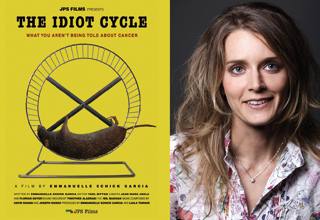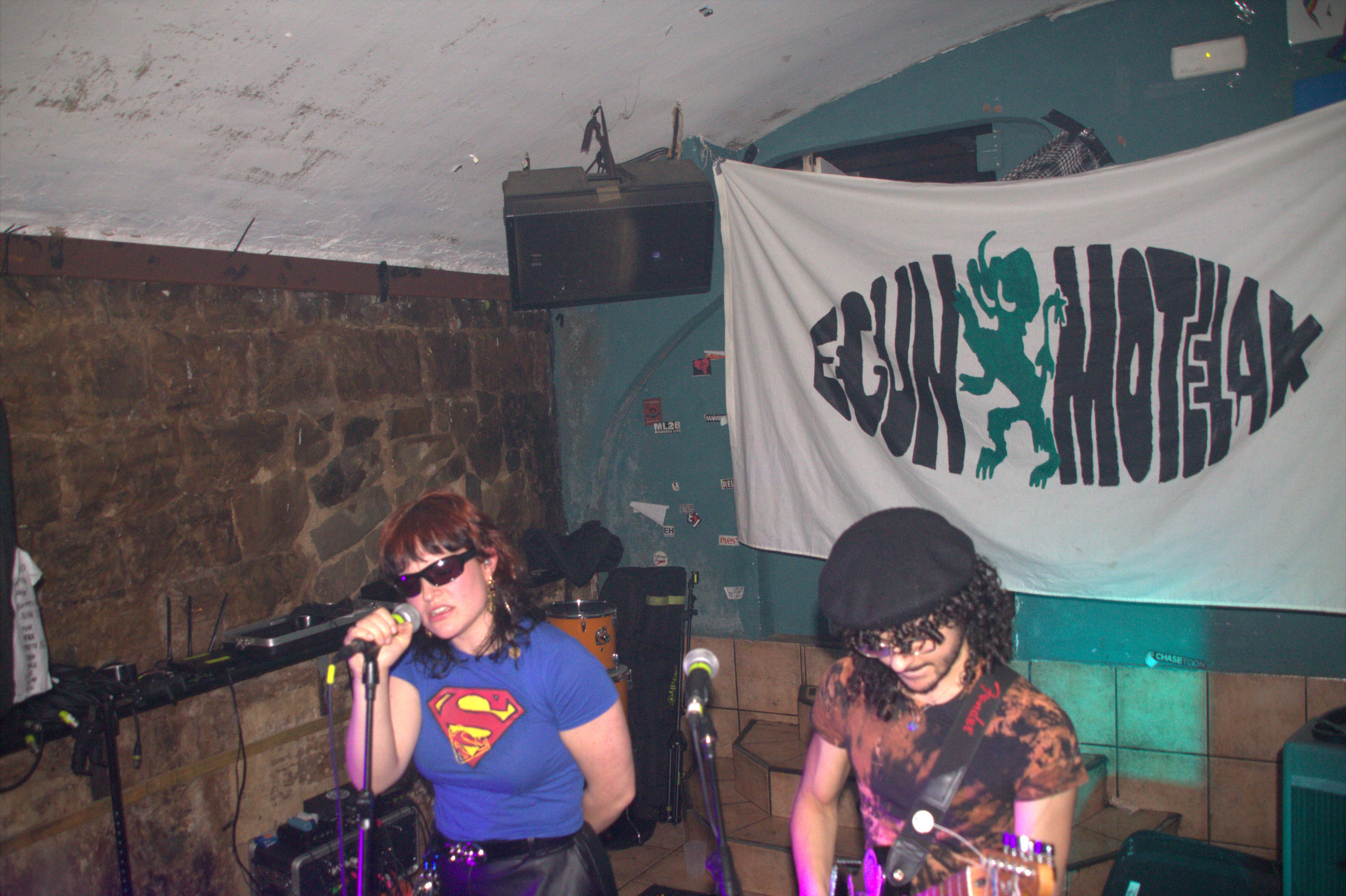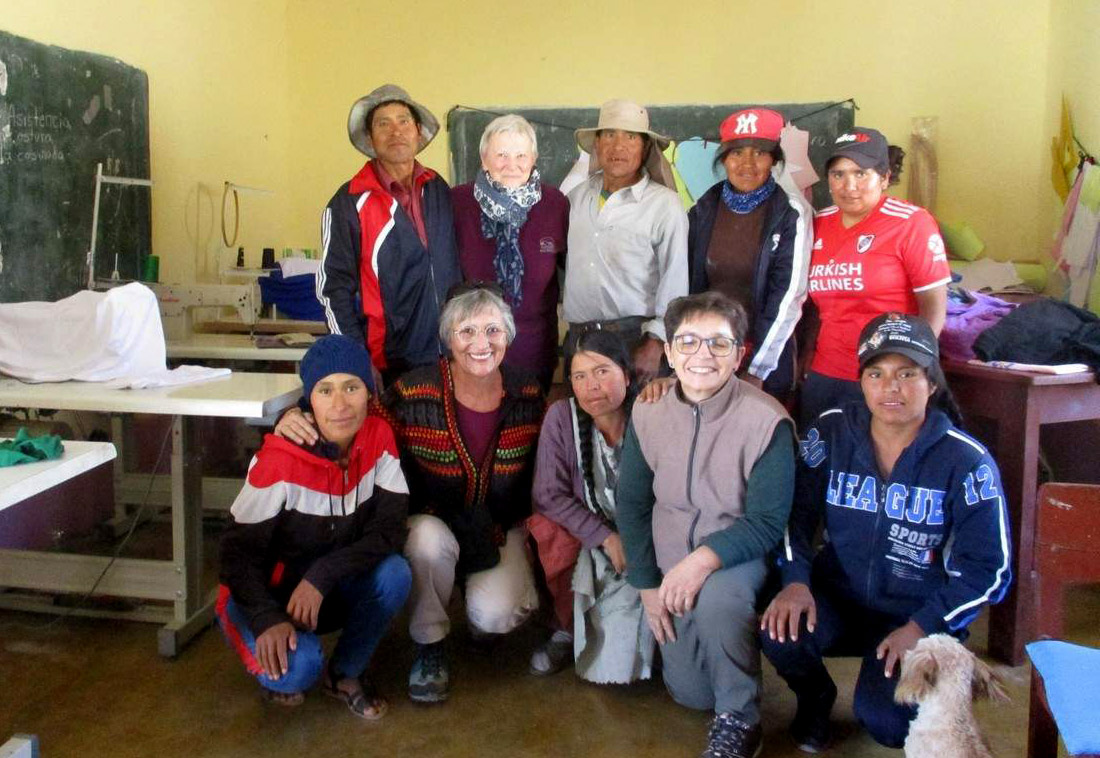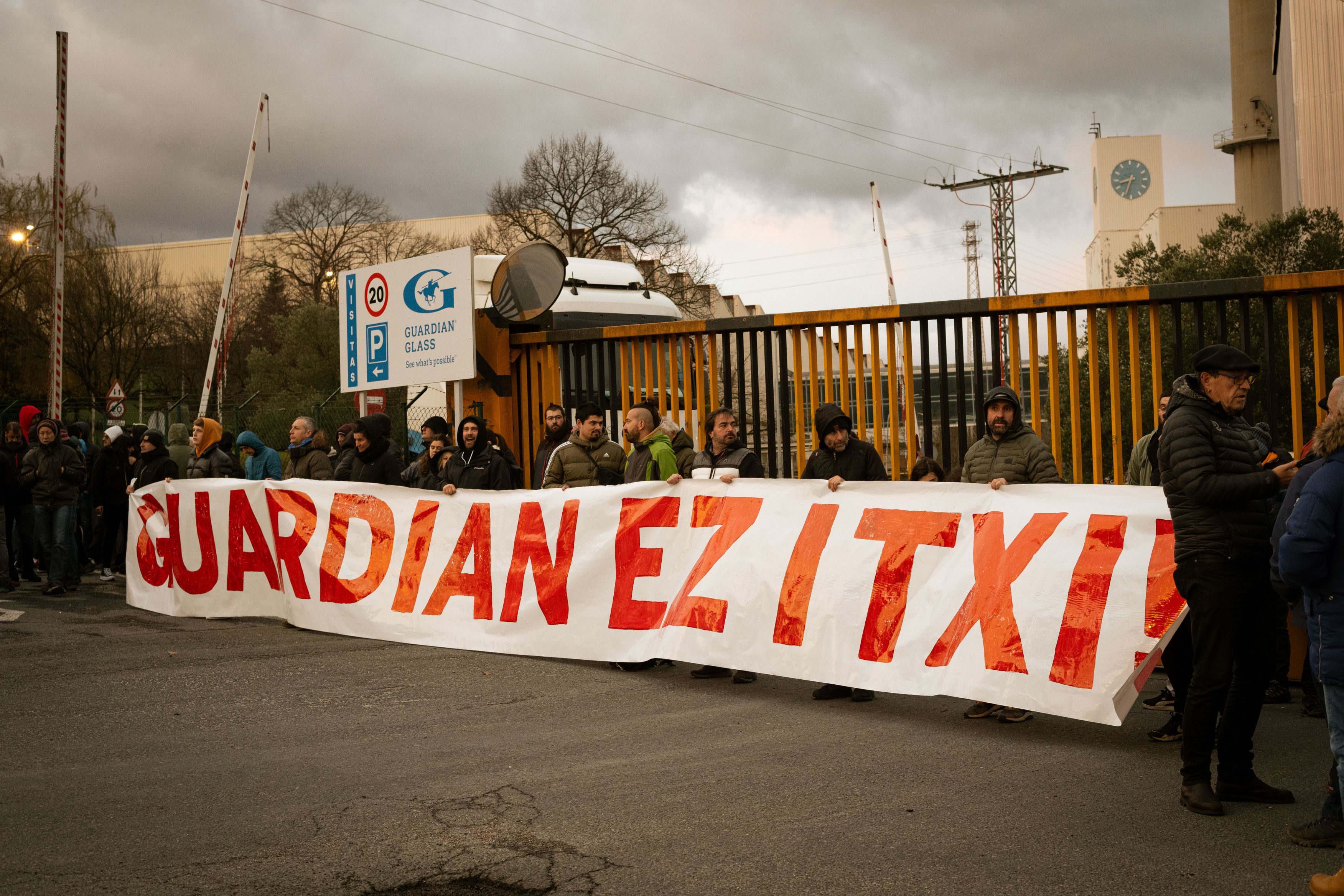'The Idiot Cycle': What makes you sick will cure you?
- The documentary The Idiot Cycle, which will go on sale this October, should make the margins blur, because it shows that the big companies that market polluting chemicals without any control are the same ones that sell drugs for the care of the chancers that will later cause the pollution. How many will watch the movie?

author of the film is the young Emmanuelle Schick García (1977). Daughter of a Canadian father and a Spanish mother, she has lived in Canada since she was a child and already has an award-winning film, such as La petite morte, which tells the story of pornographic cinema, or 20 ans déja, which explores the exploits of the French team at the 1987 Rugby World Cup!
This time, however, The Idiot Cycle is unlikely to succeed at its home in Canada. The insurance necessary to guarantee commercial distribution does not want to be signed by anyone to the authors.Error and Omissions Insurance, called E&O insurance, is required to ensure payment of the penalty in the event of a complaint from someone. No one was able to sell the policy. Emmanuelle Schick explains that many companies that sell this type of insurance want their hands clean because they have biotechnology and petrochemical corporations among their customers.Schick has been interviewed by
the English monthly magazine The Ecologist for the September issue. Here’s how to wrap the crumb of The Idiot Cycle or the Stupid Wheel: “Once problems have arisen, neither companies nor the government want to be included in the source of these problems, because it is too complicated and does not bring benefits for the economic system we have. (...) The industry sees problems not as problems but as opportunities for business. It has no benefits for citizens, but it does for corporations. Many of the ‘care’ industries for the environment (with public money) are the same ones that have previously generated pollution, which have put new chemicals such as asbestos on sale without sufficiently studying them. That's why corporations run their business twice. It’s stupid of us to let them do their own
thing.” The film focuses on six giant companies: From Dow Chemical, Basf, Bayer, DuPont, AstraZeneca and Monsanto. These are the main producers of substances that many experts believe cause cancer and at the same time the main producers of remedies available for cancer care. “The Chancellor is the disease that moves the largest business in the world,” they say in the promotional role of the film. He received the Nobel Peace and Chemistry Prize with the old saying of the sage Linus Pauling: “Everyone should know that the ‘war on the Chancellor’ is a fraud.”
Citizens The
Idiot Cycle guinea pig mainly delves into two pollutants. On the one hand, in genetically modified organisms: In Europe they are often discussed in the media, because the controversy about them remains high. On the other hand, in the pollution caused by dioxins.
The six giant companies mentioned above are the main polluters, but with them the hard dioxin emitters are the incineration plants that burn the waste of the cities. “People in this, too,” says Schick, “think there’s no problem because they haven’t heard anything about it, or think it’s not going to be such a big deal, because the industry has done a really good job trivializing the problem.” In Bizkaia,
Gipuzkoa and Navarre, the industry is operating around the world with a song similar to the one used with the incineration plant: that there are no relevant scientific studies that show the impact of these contaminations, that there is a lot of dioxin in the air that does not belong to the incineration plants... Scientists filmed by Emmanuelle Schick, on the other hand, say that there are 150 different dioxins and that they are well separated from the most dangerous ones to cause cancer and the rest, which are different, such as those produced in the burning of forests and those produced in the production or burning of plastics.
Schick highlights two other factors that condition Gaiota’s research. Dioxin’s researchers go to a certain depth, from there the internalization is expensive and they are not paid to continue. But worse than that is the fact that many scientists who have to carry out research and risk assessments are not directly paid for by chemical companies. To cite one notable case, Dr. Rice, a consultant at the International Agency for Research on Cancer (IARC), is simultaneously working at Cropscience, a GMO subsidiary within the multinational Bayer, and is also a consultant at the U.S. Institute of Petroleum Producers, a commission that investigates the effects of benzene. The man paid by the oil companies making recommendations on the dangers of benzene...
The film tries to show that in terms of the Chancellor, public institutions are failing in their duty to protect citizens. It refers to the government, but also to universities, control institutions, etc.
If Schick has more criticism. It contrasts with the fact that environmentalists and farmers are focusing their protests on food. “The industry can answer that it is up to us to choose, that we can buy something else (...) On the contrary, the issue of health can be more difficult to ignore. We all know someone who has cancer, we all want to take care of ourselves and those closest to us from the disease, that is why the industry prevents this debate without interruption.” He also complains that in the mainstream media these issues are dealt with on very rare occasions and in most cases anecdotally, the damage to people’s health caused by the millions of artificial molecules that people breathe, eat or touch every day is not
on the information agenda.
Very few of these millions of new molecules have been studied for their health effects, and the potential synergistic damages of two or more of them are not even mentioned. Without attention, new products are put on sale, those that leave the market – asbestos, for example – are banned when they are badly damaged. And once the cancer is diagnosed, the same chemical companies are the sellers of expensive remedies.
We live in a stupid cycle in the Basque Country too. When they find me the tumor, I'll be cared for in the mutual company headed by the head of the cement factory, affectionately, yes.
Okzitaniako Tolosako elkartea da aipatu kolektiboa eta Frantziako Gobernuak dekretuz desegin zuen 2022an. Orain Estatu Kontseilua gobernuaren erabakia egokia dela berretsi du.
Sare Herritarrak antolatuta, pasa den urtarrilaren 11n Bilboko kaleak bete zituen manifestazio jendetsuaren ondoren, berriz sortu da eztabaida, euskal presoei salbuespen legeriarik aplikatzen ote zaion. Gure iritzia azaltzen saiatuko gara.
Espetxe politikan aldaketa nabarmena... [+]
Duela gutxi think tank izateko jaioa omen den Zedarriak bere 6. txostena aurkeztu zuen. Beren web orrialdean azaltzen dutenaren arabera, zedarriak ebidentea ez den bidea topatzeko erreferentziak dira. Hots, hiru probintzietako jendarteari bidea markatzeko ekimena. Agerraldi... [+]
Eskoziako Lur Garaietara otsoak itzularazteak basoak bere onera ekartzen lagunduko lukeela adierazi dute Leeds unibertsitateko ikertzaileek.. Horrek, era berean, klima-larrialdiari aurre egiteko balioko lukeela baieztatu dute, basoek atmosferako karbono-dioxidoa xurgatuko... [+]
Karen Daniela Ágredok dioenez, atxilotu zutenean berak ez zuen ertzainik zauritu, haiek lurrera bota zuten eta konortea galdu zuen. Ondoren, Ertzaintzaren komisariaren zoruan iratzartu zen eta handik ospitalera eraman zuten.
Hiuzz + Bloñ + Adur
Noiz: otsailaren 15ean.
Non: Iruñeko Aitzina tabernan (Egun Motelak kolektiboa).
--------------------------------------------
Larunbat goiza Iruñean. Neguko eguzkitan lanera doazen gizon –eta ez gizon– bakarti batzuk... [+]
Zubiak eraiki Xiberoa eta Boliviaren artean. Badu jadanik 16 urte Boliviaren aldeko elkartea sortu zela Xiberoan. Azken urteetan, La Paz hiriko El Alto auzoko eskola bat, emazteen etxe baten sortzea, dendarien dinamikak edota tokiko irrati bat sustengatu dituzte.
11 doctors in health care earn 230,000 euros each year, one of the practices 18,000 euros
This Thursday, EH Bila asked the Government of Navarre to investigate and correct this situation in the plenary session of the Parliament of Navarre. The UPN and the PP have joined the... [+]















.jpg)




